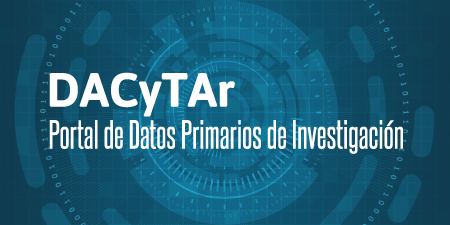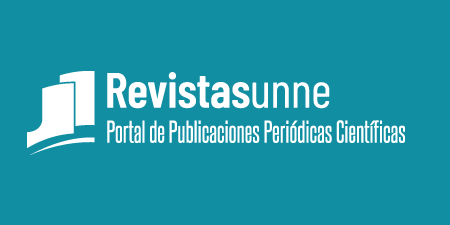Mostrar el registro sencillo del ítem
El Estado chaqueño y su interés por el cooperativismo agrícola (1951-1976)
| dc.contributor.author | Moglia, Leandro Eduardo | es |
| dc.date.accessioned | 2020-06-02T22:39:52Z | |
| dc.date.available | 2020-06-02T22:39:52Z | |
| dc.date.issued | 2017-03 | es |
| dc.identifier.citation | Moglia, Leandro Eduardo, 2017. El Estado chaqueño y su interés por el cooperativismo agrícola (1951-1976). Coordenadas. Revista de Historia Local y Regional. Córdoba: Universidad Nacional de Río Cuarto, vol. 4, no.1, p. 171-197. ISSN 2362-4752. | |
| dc.identifier.issn | 2362-4752 | |
| dc.identifier.uri | http://repositorio.unne.edu.ar/handle/123456789/4115 | |
| dc.description.abstract | El proceso de formación territorial e integración de región chaqueña al Estado-Nación tuvo dos grandes períodos, el territoriano (1872-1951) y el provincial (1951- presente). A lo largo de dichos períodos el proceso de ocupación de la tierra delineó el perfil productivo y con él la estructura agraria. Diversas coyunturas impulsaron el inicio de la producción algodonera, la consolidaron y volvieron un monocultivo. En este contexto, la formación del cooperativismo agrícola de primer grado fue una de las herramientas que hallaron los productores para agregar valor a su producción y obtener mejores precios en el mercado. A raíz del desarrollo de la industria textil nacional, el cooperativismo fue consolidándose en número de socios, capacidad de transformación y comercializaron del algodón y sus derivados. En este contexto, se produjo la provincialización del Chaco. A partir de ese momento, el nuevo estado provincial buscó acercarse al movimiento e integrarlo a sus nuevas estructuras. Sin embargo, el cooperativismo no mostró interés en aproximarse al nuevo estado provincial. Pocos años después la producción algodonera comenzó a mostrar signos de agotamiento y posteriormente entró en crisis. A partir de ese momento, el cooperativismo fue quién buscó acercase al gobierno en busca de soluciones para el sector. Es objetivo de este escrito, analizar las relaciones instituciones que se establecieron entre el cooperativismo agrícola y el estado provincial entre 1951 a 1976. | es |
| dc.description.abstract | The process of territorial formation and integration of the Chaco region to the Nation-State had two stages: the territorial one (1872-1951), and the provincial one (1951- present). Throughout these periods, the process of land occupation shaped the productive profile as well as the agrarian structure. Diverse circumstances boosted the beginnings of the cotton production and consolidated it. Then the monoculture pattern returned. In this context, the formation of first-degree agricultural cooperatives was one of the tools that producers found to add value to their production and thus obtain better prices in the market. As a result of the development of the national textile industry, the cooperative movement was consolidated and this was reflected in the number of its members, its processing capacity, and the commercialization of cotton and its derivatives. This was the context where the creation of the province of Chaco took place. The new provincial state sought to approach the movement and integrate it into its new structures. Nevertheless, the cooperative movement showed no interest in establishing relations with the new provincial state. A few years later, the cotton production began to show signs of exhaustion and subsequently entered into crisis. From that moment, the cooperative movement tried to approach the government, seeking solutions for the sector. The objective of this paper is to analyze the institutional relations established between the agricultural cooperative movement and the provincial state of Chaco, from 1951 to 1976. | es |
| dc.format | application/pdf | |
| dc.format.extent | p. 171-197 | |
| dc.language.iso | spa | es |
| dc.publisher | Universidad Nacional de Cuyo | es |
| dc.rights | openAccess | es |
| dc.rights.uri | http://creativecommons.org/licenses/by-nc-nd/2.5/ar/ | es |
| dc.source | Revista de Historia Local y Regional, 2017, vol. 4, no.1, p. 171-197. | |
| dc.subject | Chaco | es |
| dc.subject | Movimiento cooperativo | es |
| dc.subject | Algodón | es |
| dc.subject | Estado provincial | es |
| dc.title | El Estado chaqueño y su interés por el cooperativismo agrícola (1951-1976) | es |
| dc.type | Artículo | es |
| dc.description.affiliation | Fil: Moglia, Leandro Eduardo. Universidad Nacional del Nordeste. Facultad de Humanidades. Departamento de Historia; Argentina. | es |
| unne.journal.pais | Argentina | |
| unne.journal.ciudad | Córdoba |
Ficheros en el ítem
Este ítem aparece en la(s) siguiente(s) colección(ones)
-
Artículos de revista [1103]





